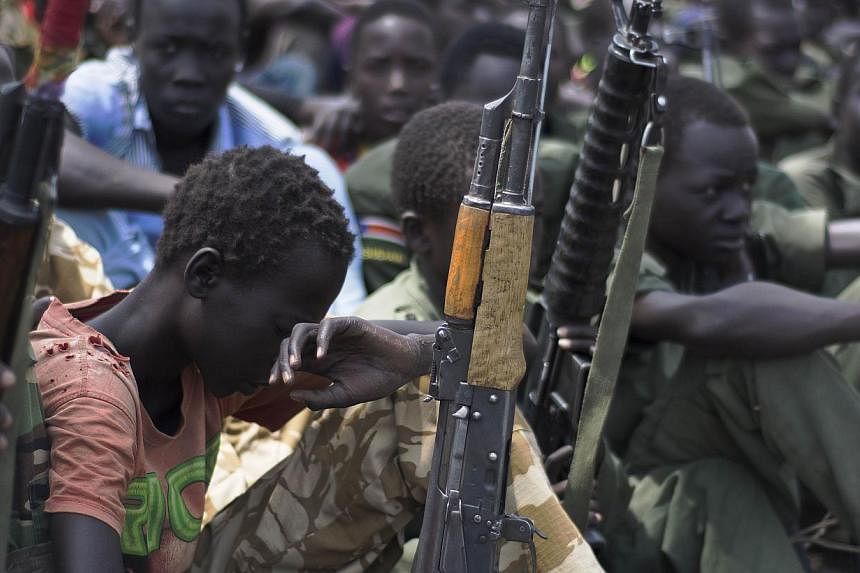BANGUI, Central African Republic (AFP) - Armed groups in strife-torn Central African Republic released 350 child soldiers Thursday, honouring a deal signed with Unicef, the United Nations children's agency said.
"After two years of heavy fighting, the release of children by these groups ... is a real step towards peace," said Unicef's representative in Bangui, Mohamed Malick Fall.
"This was the start of a process that we hope will result in the release of thousands of children associated with armed groups in the Central African Republic," said Fall.
The children have already received medical screenings and efforts have begun to provide psychosocial support and to reunite the children with their families, Unicef said.
Some will be placed in foster care until their families are found.
"Each of them will require extensive support and protection so that they can rebuild their lives and resume their childhood," Fall added.
The agreement to release them was signed this week during a reconciliation forum in the capital Bangui, backed by Unicef and its partners with the aim of restoring peace to the country.
The UN agency estimates that between 6,000 and 10,000 children are held by armed factions in the impoverished country long riven by coups, army mutinies and insurgency.
The children involved in the armed groups include those serving as combatants, those used for sexual purposes as well as those working in roles such as cooks and messengers.
The country's latest coup was launched by the largely Muslim Seleka rebel alliance in 2013, ousting president Francois Bozize.
But some of the Seleka rebels went rogue, and embarked on a killing, raping and looting spree.
In response, Christian communities formed "anti-balaka" - or anti-machete - vigilante forces who hunted down Muslims in revenge attacks.
Many regions remain affected by lawlessness, with around 50,000 people forced to flee to neighbouring countries and another 20,000 displaced inside the country since last December.
Since December 2013, nearly 900,000 people have been displaced.
LACK OF FUNDS
About half the population of 4.6 million people lives in severe poverty and needs humanitarian aid, according to the UN, which warned in late April that it had received only a fraction of the funds needed to address the crisis.
It said Central African Republic must be prevented from becoming "a forgotten crisis".
The transitional government is almost entirely dependent on foreign funds as it faces the difficult task of rebuilding a ruined administration in a country where the economy is in tatters.
The reconciliation forum this week called for upcoming presidential and legislative elections, slated for July and August, to be postponed over "the poor mobilisation of donors to finance the electoral process".
But several hundred people, some in military uniforms, demonstrated in the capital Tuesday against the recommendations.
The country has also been rocked recently by allegations that French soldiers sent to keep the peace sexually abused hungry children in exchange for food.
France's state prosecutor said last week that 14 soldiers had been placed under investigation accused of carrying out the abuse between December 2013 and June 2014.

